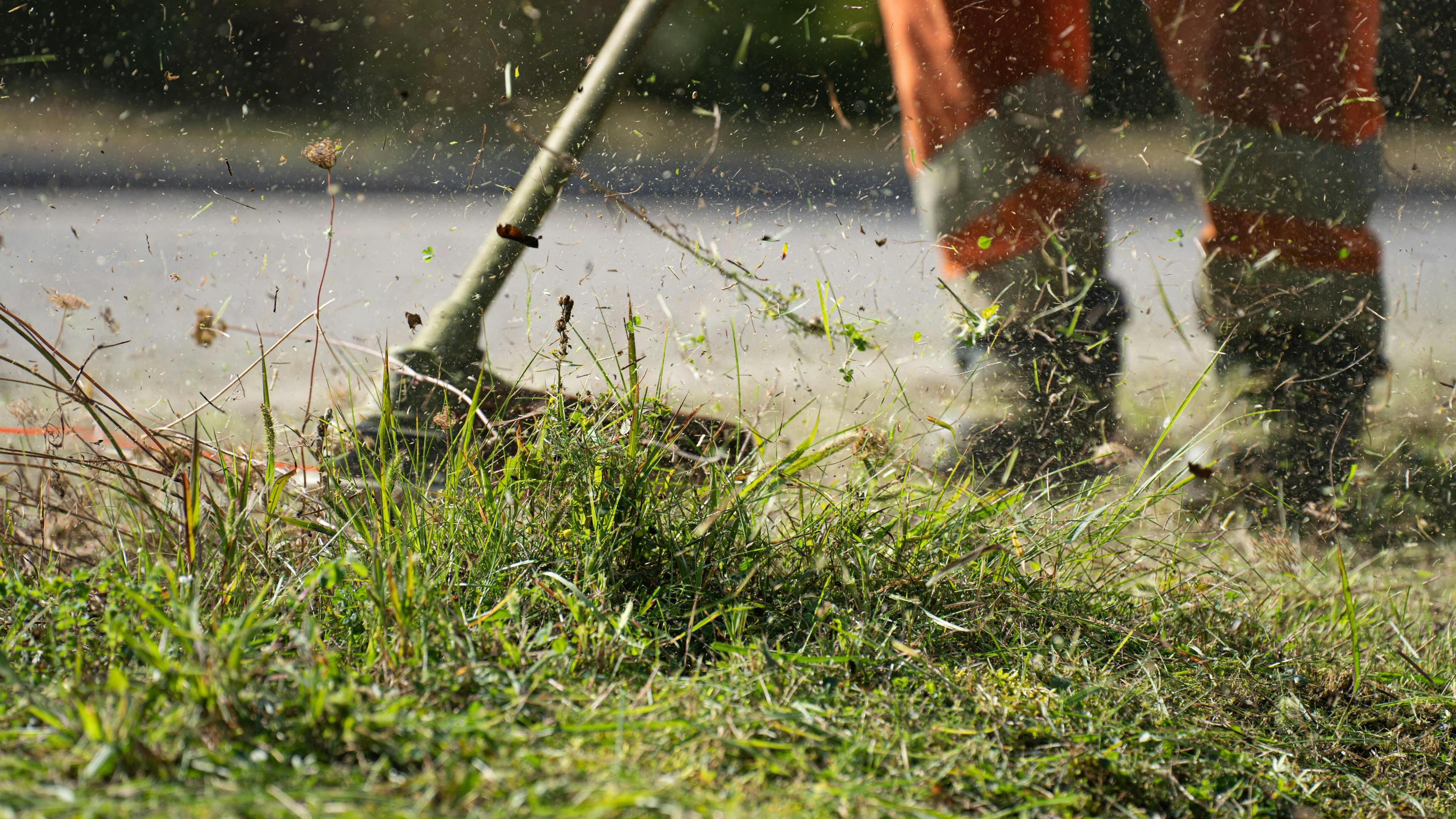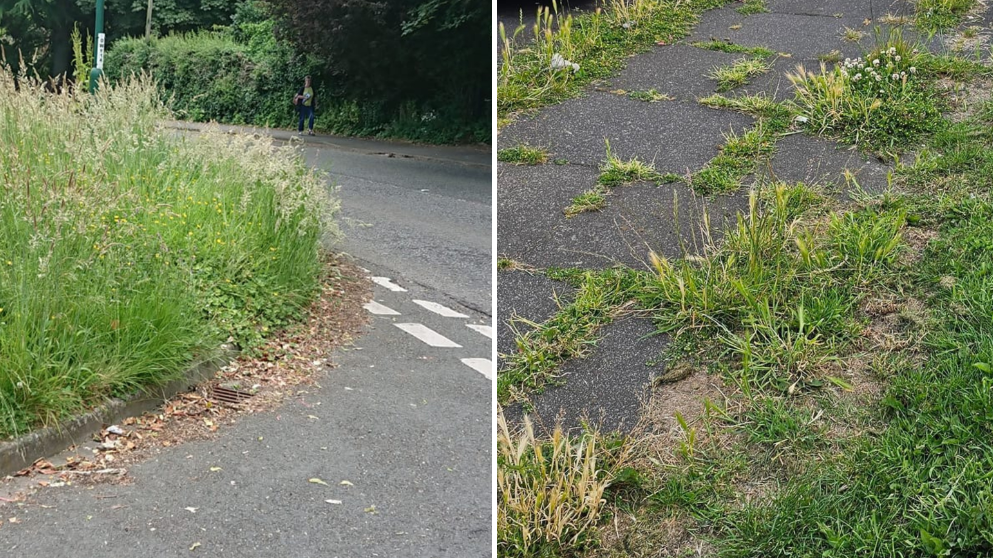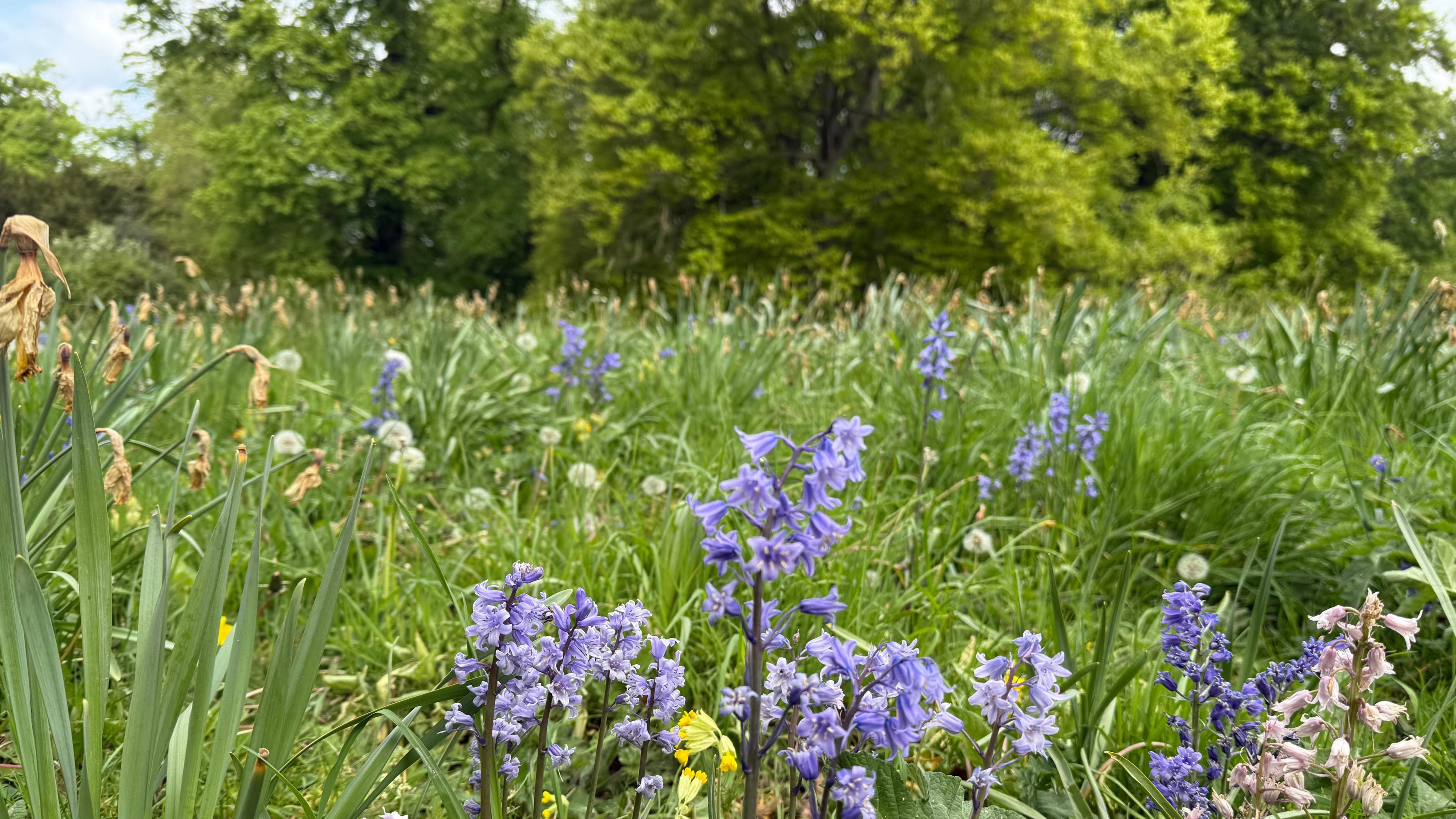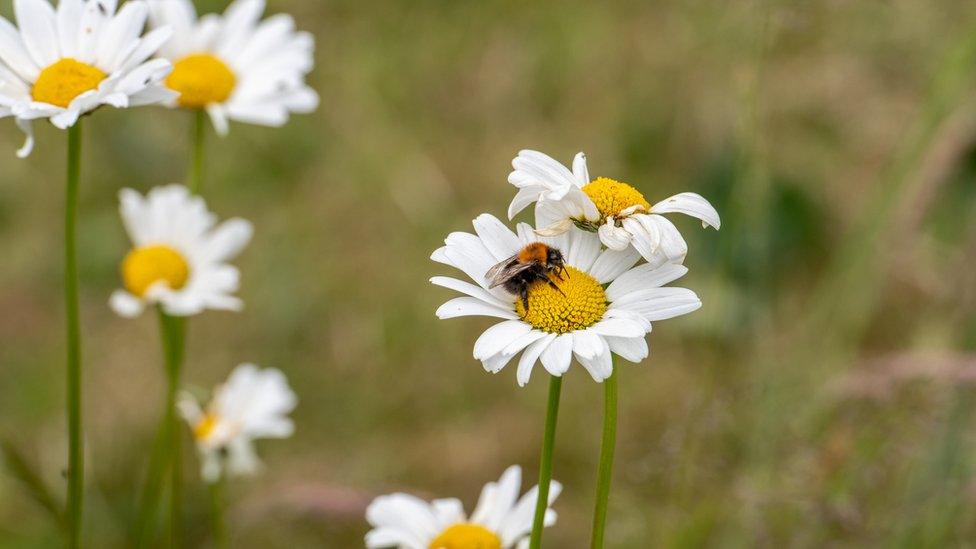Looks win out when it comes to wild spaces - study

A study found public support for wilder green spaces is predominantly driven by how attractive they look
- Published
People who care about the environment support unmown, wild spaces - as long as they are pretty, researchers have found.
A study from Durham University and Durham County Council found the public's support for wilder green spaces is driven more by how attractive they look, rather than their environmental benefits.
It comes at a time when councils are considering the implications of reducing mowing to improve biodiversity and cut maintenance costs.
Lead author of the study, Durham University's Jack Hughes, said: "It was great to find that people may be open to the idea of less mowing, and it's understandable that people want that change to make where they live prettier."
More than 900 people living in, working in, or visiting County Durham were surveyed.
Participants were first asked about whether they wanted more or less mowing in the county, and if they wanted more or less wild spaces.
On average, they said they wanted less mowing and more wild spaces.
They were then asked about different perceptions and concerns about wild spaces they might have, and were asked to rank how strongly they felt about them.
The answers to all of these were then combined to see which of the concerns had the most influence on whether people supported wild spaces or not.

The study showed those who view wild areas as untidy were more likely to oppose them
The survey answers revealed almost everyone said they cared deeply about the environment and were worried about the ecological impact of frequent mowing.
However, environmental concern was not the key factor in whether or not people supported wild spaces.
Rather, people's support depended on whether they thought wilder areas looked "neat, pleasant and attractive".
Participants who viewed unmown or rewilded areas as beautiful were far more likely to support them, while those who saw them as untidy were more opposed.
Mr Hughes added: "I think it's valuable to understand what people think. I think that's the real value of what this research does."
According to the study, public support might be possible by making wild spaces look intentional and appealing, rather than overgrown or abandoned.
Durham County Council, which co-designed the survey, said the findings will help when making plans for open space management across the county, and give good insight into what people actually want on their doorstep.
Follow BBC North East on X, external, Facebook, external, Nextdoor and Instagram, external.
Get in touch
Do you have a story suggestion for BBC North East & Cumbria?
Related topics
- Published3 November

- Published15 October

- Published29 April 2022
